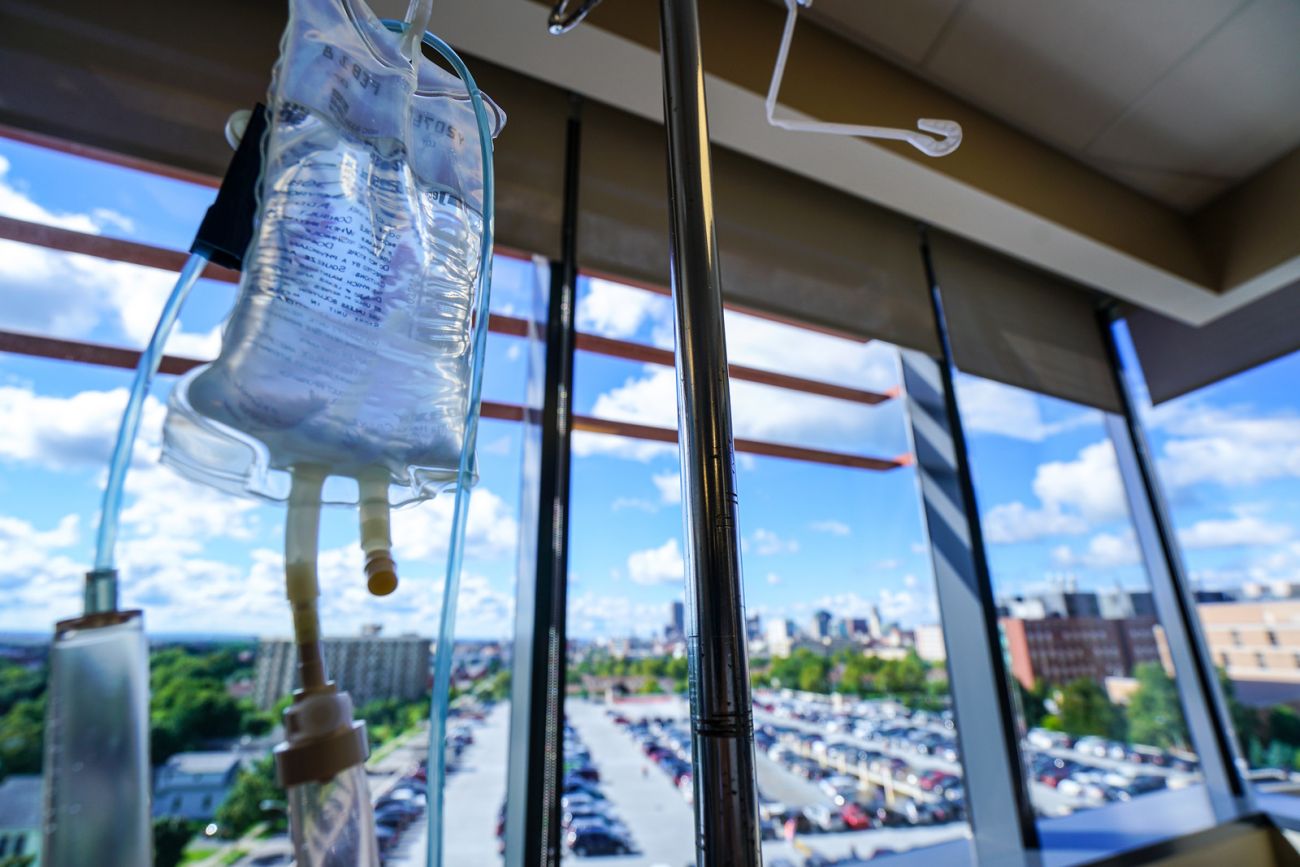Roswell Park-led research points to new strategies for reducing risk of transplant rejection
- Dr. Muhammad Awidi led meta-analysis based on more than 2,600 cases
- Data show risk varies by type of ICI and transplanted organ
- Results to be shared at American Society of Clinical Oncology Annual Meeting
BUFFALO, N.Y. — A meta-analysis led by a researcher at Roswell Park Comprehensive Cancer Center has identified key factors that could improve outcomes for cancer patients treated with immune checkpoint inhibitors (ICIs) before or after a solid-organ transplant. The study, which examined how ICI therapy affected the risk of transplant rejection in cancer patients who were also solid organ transplant recipients, will be featured as an oral abstract during a Clinical Science Symposium Monday at the American Society of Clinical Oncology (ASCO) Annual Meeting in Chicago.
“This work one of the most comprehensive studies to date on the use of checkpoint inhibitors in transplant recipients,” says Dr. Muhammad Awidi, MD, Hematology/Oncology Fellow at Roswell Park, senior author on the new work. “Our study lays essential groundwork for developing safe treatment protocols and expanding access to lifesaving immunotherapies for a high-risk group often excluded from immune therapy clinical trials.”
ICIs have become a mainstay of cancer treatment over the past 14 years, helping extend the time until disease progression and boosting long-term survival in patients with metastatic disease. They’re designed to “release the brakes” on the immune system so the patient’s own body can mount a stronger attack against the cancer. But that creates a conflict in patients who undergo organ transplant, because they must take immune-suppressing drugs the rest of their lives to prevent their immune systems from recognizing the donor organ as foreign and attacking it — a condition called allograft rejection.
Dr. Awidi and the research team, comprised of experts from Roswell Park and the University of Jordan in Amman, Jordan, combed through 2,682 abstracts in the PubMed, Embase and Scopus databases to identify 198 studies involving a total of 331 solid-organ transplant patients who met the criteria for inclusion in the meta-analysis. Of those patients, 175 received liver transplants, 136 received kidney transplants, 15 received heart transplants and five received lung transplants.
The data revealed that rejection rates were highest among patients who received a donor kidney, at 46.3% (63/136), followed by heart (40.0%; 6/15) and liver (26.9%; 47/175). Among three types of immune checkpoint inhibitors, rejection rates were highest in patients who received anti-PD1 therapy (40.6%) vs. those who received anti-CTLA4 (25%) and anti-PDL1 (0%). Rejection rates were also higher in patients who received ICI therapy after the transplant (40.9%) vs. pre-transplant (25.9%).
The analysis found that the overall response rate varied according to the type of ICI administered, from anti-PDL1 (72.7%) to anti-PD1 (41.8%), anti-PD1 plus CTLA4 (28%) and anti-CTLA4 (25%). Patients diagnosed with cutaneous squamous cell carcinoma (cSCC) had the highest overall response rate (49.1%), followed by hepatocellular carcinoma (40.8%) and melanoma (25.3%).
Dr. Awidi and his co-investigators conclude that ICI therapy in solid-organ transplant patients is “high-risk yet promising,” and that further research is needed to better inform treatment and identify factors that could help predict outcomes in this group of patients.
Presentation details
- Abstract 2511, Oral Abstract Session
- Monday, June 2, 5:18-5:30 p.m. CDT
- Presenting author: Muntaser Al Zyoud, University of Jordan
- Senior Author: Muhammad Awidi, MD, Roswell Park Comprehensive Cancer Center
###
From the world’s first chemotherapy research to the PSA prostate cancer biomarker, Roswell Park Comprehensive Cancer Center generates innovations that shape how cancer is detected, treated and prevented worldwide. Driven to eliminate cancer’s grip on humanity, the Roswell Park team of 4,000 makes compassionate, patient-centered cancer care and services accessible across New York State and beyond. Founded in 1898, Roswell Park was among the first three cancer centers nationwide to become a National Cancer Institute-designated comprehensive cancer center and is the only one to hold this designation in Upstate New York. To learn more about Roswell Park Comprehensive Cancer Center and the Roswell Park Care Network, visit www.roswellpark.org, call 1-800-ROSWELL (1-800-767-9355) or email ASKRoswell@RoswellPark.org.
Annie Deck-Miller, Director of Public Relations
716-845-8593; annie.deck-miller@roswellpark.org
